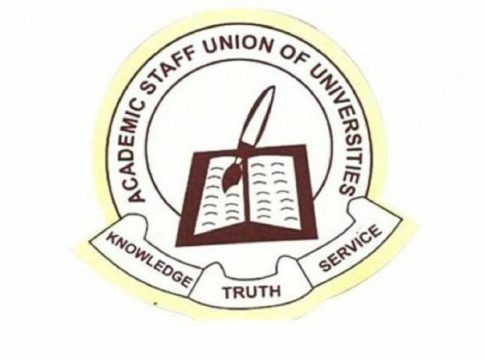Troubling times loom for students in Nigeria as the Academic Staff Union of Universities (ASUU) has signaled the potential onset of a comprehensive national strike.
The cause for this drastic move is attributed to the ongoing vacancy in governing councils at all federal universities in the nation, among other unresolved issues with the government.
ASUU, which reflects on the government’s action that led to the dissolution of these councils in May of the previous year, has urged the Nigerian public to hold the government accountable for any steps it takes in response to its grievances.
At a press briefing in Abuja, which was reported by Africa Today News, New York, ASUU president Prof. Emmanuel Osodeke expressed the union’s rejection of the current state of affairs which undermines university autonomy due to the lack of reinstatement of Governing Councils.
Osodeke underlined the importance of the public holding both federal and state governments accountable should the situation escalate into a crisis that could have been prevented.
This announcement follows a meeting of ASUU’s National Executive Council (NEC) at Obafemi Awolowo University in Ile-Ife from May 11th to May 12th, 2024.
The meeting involved a thorough evaluation of ASUU’s dialogue with both Federal and State Governments on strategies to elevate Nigeria’s public universities to an international level of recognition and competitiveness.
The assembly also addressed the deteriorating living and working conditions at universities and across the nation.
READ MORE: Solar Energy: Nigeria Aims to Lead in Production Of Solar Technology For Africans
Osodeke brought attention to reports of unmet promises by the Federal and State governments regarding long-standing issues that propelled ASUU into the prolonged strike from February to October 2022.
He stated: “Our union has made it clear time and again that salary increases are not an alternative to a negotiated agreement.
“An agreement between ASUU and the Federal Government is all-encompassing and not limited to salaries. It includes various necessities for developing a university system competitive enough to tackle Nigeria’s developmental challenges.”
Concerning governing councils, Osodeke remarked, “It is disheartening to note the ongoing erosion of autonomy in our public universities, which goes against the Universities Miscellaneous Act’s stipulations.”
He remarked: “The arbitrary dissolution of Governing Councils by the Tinubu administration and several state governments has given rise to a host of irregularities within the Nigerian university system.
“Universities now conduct unauthorized appointments for Vice-Chancellors. It is becoming common for outgoing vice-chancellors, along with federal and state education ministries, to manage universities daily, often bypassing the correct governance processes.”
In conclusion, ASUU also criticized the Integrated Personnel and Payroll Information System (IPPIS), denouncing it as a flawed system that not only causes immense distress to Nigerian academics but also corrupts university operations, especially in regard to payroll management.




